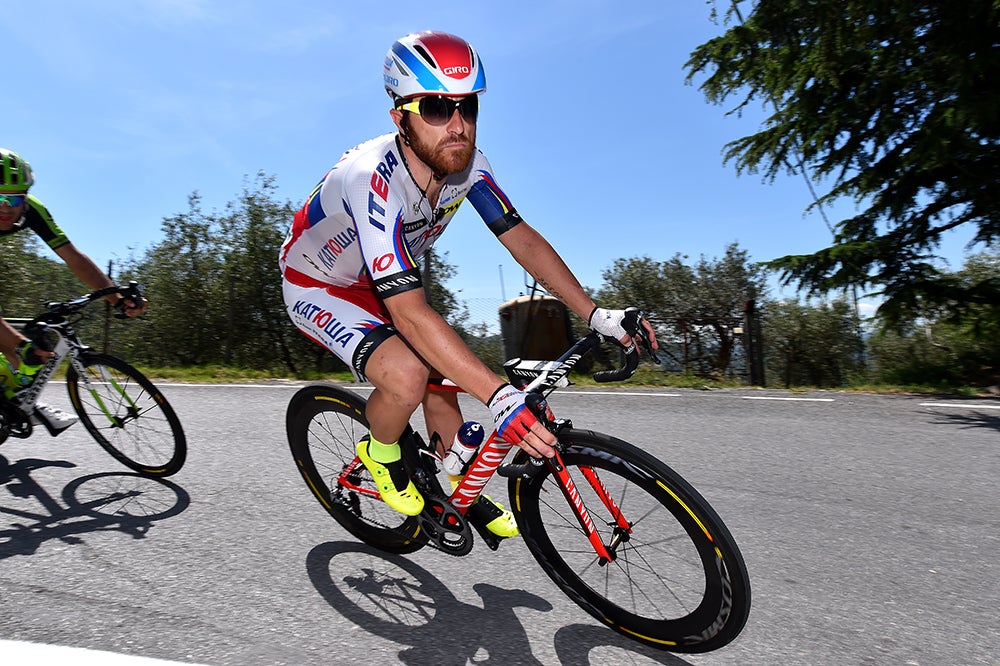Paolini admits cocaine use, sleeping pill abuse

Luca Paolini, shown during the 2015 Giro d'Italia, has admitted to using cocaine and to an addiction to sleeping pills. Photo: Tim De Waele | <a href=http://www.tdwsport.com target="_blank">TDWsport.com</a>
Nearly six months after he was booted from the Tour de France for a cocaine positive, Luca Paolini has admitted to using the drug and to a long struggle with a sleeping-pill addiction that he says led him down the wrong path.
Paolini was removed from the Tour on July 10th after testing positive for cocaine, which is banned in competition. He has since spent time in a detox facility.
In an interview in Gazzetta dello Sport, the Italian winner of Ghent-Wevelgem said his addiction problems began with sleeping pills following the death of his brother in 2004. He used the pills to get a good night’s rest and to tackle “the physical and mental effort of the next day,” he said.
“It all started with sleeping pills, whose main active ingredient is benzodiazepine. But this creates an addiction,” he said. “The worst occurs at night; when benzodiazepine gains power I lose lucidity. And then came the cocaine. For me, it was inevitable. I did it almost without realizing it. I was alone that night, I was alone during the two weeks of training in the mountains in mid-June, before the Tour, when I took cocaine. And I cannot forgive myself.
“I am a husband, father, and a prominent sportsman, I had to be an example, I betrayed a generation that believed in me. This is what hurts me.”
Paolini has been a professional since 2000, riding for Mapei, Quick Step-Innergetic, Liquigas, Acqua & Sapone, and finally Katusha, his team since 2011. The classics rider has stage wins at the Giro d’Italia and Vuelta a España, won the 2013 edition of Omloop Het Nieuwsblad, and, in one of the finest displays of tactical acumen of the 2015 season, took a windy Gent-Wevelgem victory this year.
The UCI announced in early December that it would refer his case to its Anti-Doping Tribunal, which will determine the length of his suspension. His Katusha team has indicated that it would allow him to race once more should he be cleared. For the 37-year old, a full-length ban could spell the end of his career. But he remains hopeful.
“Thanks to the cocaine episode, I’m back to being a person. I have returned to living,” he said. “I take full responsibility, and I must not look for excuses. But I tell you this story so that people do not repeat the same mistakes.”